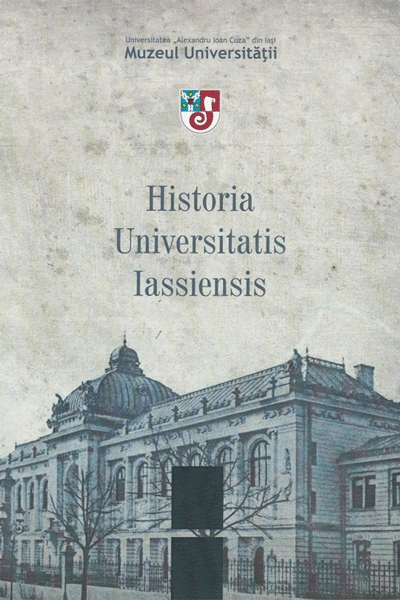Universitari ieșeni combatanți în Marele Război. Jurnalele lui Neculai Costăchescu și Ștefan Zeletin
Professors and the Great War. Diaries of Neculai Costăchescu and Ștefan Zeletin
Author(s): Mihai TudosăSubject(s): History, Pre-WW I & WW I (1900 -1919)
Published by: Editura Universităţii »Alexandru Ioan Cuza« din Iaşi
Keywords: autobiographical texts;Great War; Great War in literature;Ștefan Zeletin; Neculai Costăchescu; 1916 Campaign; war experiences; early 20th century in Romania;
Summary/Abstract: This study compares the frontline diaries from the Great War of Neculai Costăchescu and Ștefan Zeletin, who are, as far as I know, the only combatant professors from the University of Iași with published autobiographical writings about the concerned period. The current study analyses different aspects, regarding the publication details, as well as the routes depicted in the texts, the authors’ opinions about war and politics alongside psychological analysis. The texts also provide precious information about the first half year of the Romanian campaign, concerning both tactical and everyday life aspects, as well as the relationships between the common soldiers (conscripts), the NCOs, the combatants, lower rank officers and high ranking, commanding officers, all seen and filtered by the eyes of intellectuals. At least for the part described in their writings, their war experiences were almost totally opposite. Even if the ammo and equipment were stringent and the human resource was constantly reduced by disease and deserters, the unit com-manded by Neculai Costăchescu learned fast and adapted well to the frontline conditions, achieving some victories and retreating not because of the enemy attacks, but by order of the superior officers. As for Ștefan Zeletin, the lack of effective training of the troops and command of the higher ranked officers, combined with the counter-offensive of the German and Austro-Hungarian armies generated very low morale and a big series of defeats and disorganised retreats. Even if the conditions were often desperate, the two professors, mobilised in the Romanian army as lieutenants, did their best trying to achieve tactical success and to improve the conditions of their troops. The war atrocities they saw affecting both civilians and military personnel, as well as the idea of fighting for a better country (or at least realising why the war was almost lost for Romania) acted as a turning point for both professors. Their post-war period activity – another aspect included in this study – marked the moment they joined politics, as well as a rise in their didactic and scientific works.
Journal: Historia Universitatis Iassiensis
- Issue Year: 2019
- Issue No: 10
- Page Range: 7-18
- Page Count: 12
- Language: Romanian

